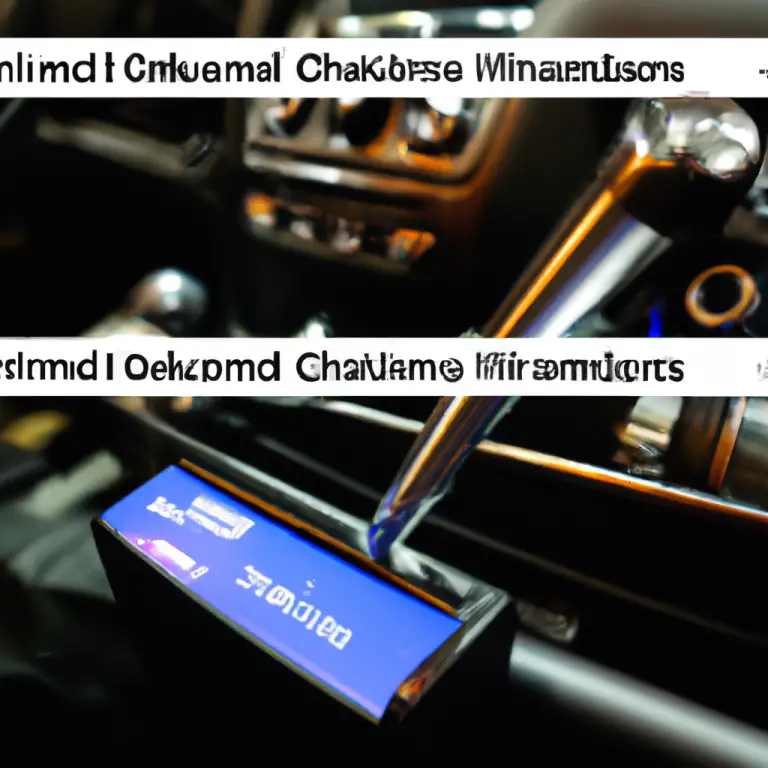2014 Ford Focus Transmission Recall
In the realm of automotive recalls, one can’t forget the 2014 Ford Focus Transmission Recall. Deemed consequential by an array of automotive experts, the recall stemmed from a persistent transmission issue in the 2014 Ford Focus model which required strategic intervention. This distinct article will facilitate an in-depth understanding of the key dynamics at play during the recall process, explicating the reasons behind the recall, its widespread impact, and Ford’s response. A deeper comprehension of this focus not only informs but provides valuable insights into broader vehicular recall landscapes and the overarching measures adopted to ensure continued consumer safety. With a comprehensive trajectory detailing the recall chronicles of the 2014 Ford Focus, you will gain significant knowledge on this notable event in automotive history.
Background of the 2014 Ford Focus
Details of 2014 Ford Focus model
The 2014 Ford Focus was a standout model released by Ford. Its design was sleek and modern, following a global design language. Available in several variants, the model became popular among customers for its impressive features, fuel efficiency, and spacious interiors. The Focus came with Ford’s signature SYNC infotainment system, which included voice commands, Bluetooth, and audio streaming, among other features. This car also boasted various safety features such as stability control, anti-lock brakes, and numerous airbags.
Common features and specifications
The 2014 Ford Focus was designed with the modern driver in mind. It included a 2.0L DOHC engine, capable of delivering significant horsepower. Other specifications included a 4-wheel disc brake system, fuel-efficient technology, and an optional six-speed dual-clutch automatic transmission for smooth shifting. The model also featured a smart PowerShift transmission which was touted as a technical marvel which would increase the vehicle’s overall performance and fuel efficiency
Customer reviews and ratings
Prior to the transmission issue coming to light, customers generally rated the 2014 Ford Focus well for its stylish design, smooth handling, and fuel efficiency. Its comfortable seating and high-quality cabin materials also received positive reviews. However, it also earned some criticism for its complicated infotainment system and the PowerShift transmission which some customers found difficult to adjust to.
The 2014 Ford Focus Transmission Issue
Reported transmission problems
Despite its initial appeal, the 2014 Ford Focus began to show significant problems, particularly with its transmission. Owners reported issues with the PowerShift dual-clutch automatic transmission, including jerkiness, hesitation, and in some cases, total failure.
Impact on the vehicle’s performance
The reported transmission issues greatly affected the performance of the 2014 Ford Focus. Drivers experienced difficulty with gear shifting, shuddering movements, unanticipated acceleration, and the inability to ascertain the gear the car was in. The performance irregularities not only caused inconvenience, but also raised serious safety concerns for vehicle owners.
Customer complaints and responses
As problems continued to escalate, customers started to voice their concerns publicly. The transmission issues strained Ford’s relationship with Focus owners. Many expressed their frustrations at dealerships, brand service centers, and public platforms, pointing at the distress the malfunction caused them.

Announcement of the Recall
Official announcement by Ford
As the transmission problems became increasingly widespread, Ford had no choice but to respond formally. Subsequently, they announced a recall of the 2014 Ford Focus due to the faulty PowerShift transmission.
Reasons cited for the recall
The primary reason for the recall was the malfunctioning PowerShift transmission. Ford stated that the issue could lead to loss of power while driving, increase the risk of a crash, or affect the vehicle’s parking function. This was a safety concern that could not be ignored.
Models included in the recall
The recall was not limited to the 2014 Ford Focus. Other models fitted with the same PowerShift transmissions, including certain Ford Fiesta models, were also part of this large-scale recall.
Details of the 2014 Ford Focus Transmission Recall
How the recall process works
Once the recall was announced, Ford was obligated to contact the owners of the affected vehicles. Dealers usually offer to repair the issue free of charge, replace the car if it cannot be repaired, or offer a refund.
Steps to determine if your car is affected
To confirm if your car is affected, locate the Vehicle Identification Number (VIN) and use it to check on the National Highway Traffic Safety Administration’s (NHTSA) website or Ford’s official website.
Recall reference numbers for documentation
For the 2014 Ford Focus recall, owners need to be aware of the recall reference number 18S32 issued by Ford.

Customer Response to the Recall
Feedback from affected car owners
Affected car owners expressed a variety of responses. Many felt relieved that Ford finally acknowledged the problem and was taking steps to rectify it. However, others were disappointed and frustrated that it took so long for a recall to be initiated.
Response on social media and car forums
Social media platforms and car forums were rife with discussions regarding the recall. Many expressed their concerns about Ford’s initially slow response to widespread complaints.
Public sentiment about Ford’s handling of the issue
Public sentiment regarding Ford’s handling of the issue was varied. While some appreciated Ford’s eventual response to this serious malfunction, others felt betrayed, questioning Ford’s initial denial of these issues.
Repair Procedures for the Transmission Issue
Description of the repair process
The repair process involved extensive testing and diagnosis by certified Ford technicians to verify the issue. Once confirmed, they replaced the faulty parts in the transmission system.
Location and schedule for free repairs
Affected owners were instructed to bring their vehicles to their local Ford dealership. The repairs were scheduled as per the convenience of each person, with Ford taking responsibility for any charges associated with these repairs.
Estimated time for completion of repairs
The estimated time for completion of the repairs varied depending on the specific issue and the availability of replacement parts. Generally, the process was expected to take from a few hours to several days.
Impact of the Recall on Ford
Effect on company stock and sales
The recall of the 2014 Ford Focus inevitably had an impact on Ford’s reputation, potentially causing share prices to fall. Additionally, it may have discouraged potential buyers, causing a drop in sales.
Damage to brand reputation
The mass recall certainly damaged Ford’s brand reputation, as it raised questions about the company’s commitment to quality and customer safety.
Ford’s strategy to handle the issue
Ford’s strategy to handle the issue involved immediate action to rectify the issue for existing owners and making changes to its production line to prevent similar issues in future models.
Consumer Protection Laws Related to Recalls
Car owner’s rights during a recall
During a recall, car owners have the right to get their vehicle repaired or replaced, free of charge. They also have the right to be compensated for any cost associated with the defect, depending on specific consumer protection laws.
Legal protections and compensations
Consumer protection laws dictate that car manufacturers have a responsibility to ensure their products are safe for use. If they fail to do so, they could face legal action, including being required to compensate affected customers.
How to file a claim or complaint
Complaints during a recall can be filed with the Federal Trade Commission in the United States. For a claim, one can contact a lawyer who specializes in automotive defects.
Advice for 2014 Ford Focus Owners
Safety precautions for driving a recall vehicle
One of the most important safety precautions would be to avoid driving the vehicle before repair/inspection. This would ensure the safety of both the drivers and the passengers.
Navigating the recall process
Navigating the recall process involves contacting your dealer, planning for the necessary repairs or replacements, and safeguarding any relevant receipts or documents.
Alternative mobility options during repair
Consider alternative mobility options like public transportation, ride-sharing services, or rental cars during the repair period.
What Was the Reason for the Ford Focus 2014 Transmission Recall?
The ford focus 2014 transmission recall occurred due to a faulty clutch that caused shuddering, loss of power, and abrupt gear shifting. This issue affected both the manual and automatic transmissions of certain models. Ford acknowledged these problems and initiated a recall to address the safety concerns and ensure customer satisfaction. Following the Ford Focus 2014 transmission recall, Ford continued to face similar issues with other models, most notably the Ford Edge. The ford edge transmission recall was prompted by reports of sudden stalls, difficulty shifting gears, and unexpected acceleration. Ford took swift action to address these concerns and implement necessary repairs to improve the performance and safety of the affected vehicles. The company’s proactive response to these transmission issues demonstrates their commitment to ensuring the quality and reliability of their vehicles.
Lessons from the 2014 Ford Focus Transmission Recall
Insights for car manufacturers
Car manufacturers should take product quality seriously. Any compromise can lead to profit losses, damage to brand reputation, expensive recall processes, and legal repercussions.
Implications for regulatory bodies
Regulatory bodies need robust systems to quickly identify and react to such issues. This will ensure customer safety and satisfaction.
What consumers can learn from this recall
Customers can learn the importance of staying informed about their vehicles. Regular servicing and paying attention to any irregularities in the vehicle’s performance can prevent potential issues. It also highlights the importance of understanding one’s rights as a consumer.




